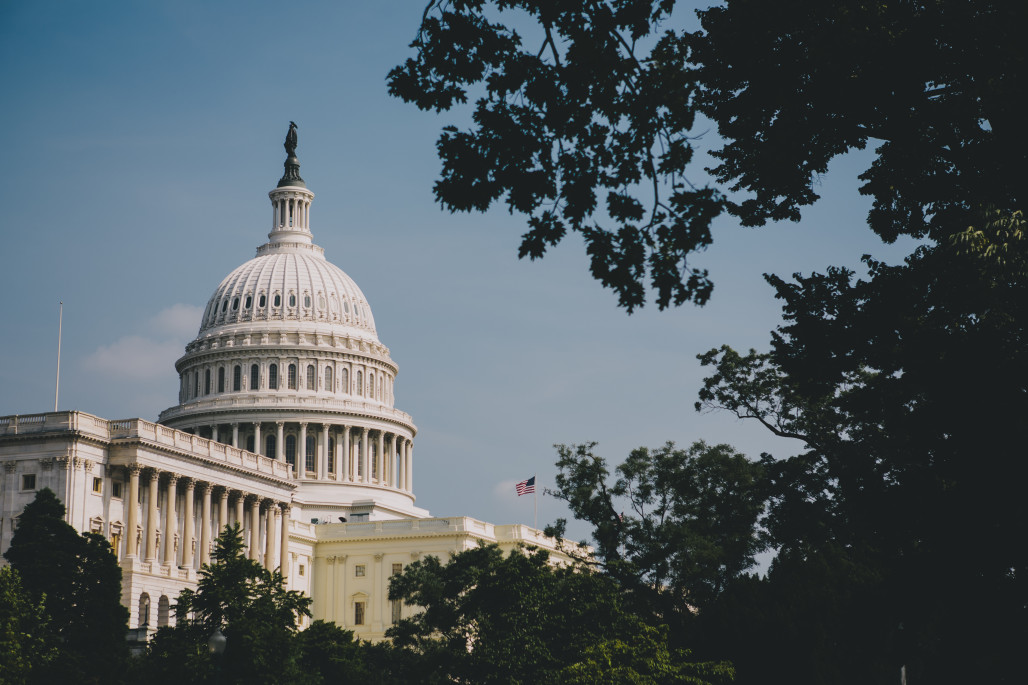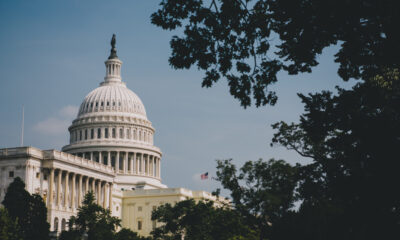BIPOC
Biden signs $1.9 trillion American Rescue Plan, what it means for Washingtonians
The package provides support for individuals, businesses, renters, landlords, tribal communities, counties and towns.

[SEATTLE] – (MTN) On Thursday, President Joe Biden signed the $1.9 trillion American Rescue Plan. The sweeping measure provides a wide range of support to states and municipalities, businesses, and individuals impacted by COVID-related hardship.
The bill provides sweeping measures that will provide benefits for many in Washington state. Individuals tax filers who earned less than $75,000 and households that earned less than $150,000 can expect to receive their $1,400 stimulus check by the end of March. A household of four that made under $150,000 could receive as much as $5,600 in stimulus money. A reduced benefit is provided for individuals who earned up to $80,000 and households that earned up to $160,000.
For the unemployed, Pandemic Unemployment Assistance (PUA) and Pandemic Emergency Unemployment Compensation (PEUC) have been extended to September 6, 2021. For Washington state residents, the extension will end on September 4, 2021. Also, the $300 federal boost to unemployment will continue through the same period. The Washington Employment Security website indicates that most recipients will not have a gap in benefits. However, those that are on extended unemployment benefits will need to apply for PUA or PEUC. A spokesperson for the state indicated that PUA is the last resort for those who don’t qualify for PEUC.
The first $10,200 of unemployment compensation paid in 2020 and 2021 is tax-exempt. Individuals that have already filed their 2020 tax return will have to make an amended return.
Another benefit for Washingtonians will provide financial relief to those buying health insurance through the federal health exchange or state marketplace. The amount paid is capped for the next two years at 8.5% of income, significantly reducing healthcare premiums for hundreds of thousands.
If you’re paying for health insurance through COBRA, and your job loss was COVID-related, the government will pay 100% of the premiums from April 1 to September 30, 2021.
For government, healthcare, and direct COVID response
- $219.8 billion available through December 31, 2024, for states, US territories, and tribal governments to mitigate the fiscal impact from COVID response
- $195.3 billion is set aside for direct federal aid to states and districts
- $4.5 billion is set aside for direct federal aid to territories such as Puerto Rico and Guam
- $20 billion is set aside for direct federal aid to tribal governments
- $130.2 billion is set aside for direct federal aid to cities, towns, and counties
- $91 billion to the Department of Health and Human Services (HHS) to accelerate the production of COVID vaccines and fund continued research while expanding testing and contact tracing
- $47.8 billion to HHS to diagnose, trace, and monitor COVID infections, directing HHS to implement a national, coordinated strategy, including the use and distribution of testing kits, adding lab capacity, and creating mobile test capacity to support rural communities
- $7.5 billion for the Centers for Disease Control for tracking vaccination nationally and monitor efficacy long term
- $7.6 billion to assist Community Health Centers in rural and poor regions of the country to provide vaccinations and COVID related medical services
- $7.7 billion to HHS to rehire and expand staffing that was cut by the prior administration
- $58.5 billion to be set aside to the Federal Emergency Management Agency (FEMA) disaster fund through FY2025, to reimburse states for COVID related expenses, and to help states fund rural health care, providers
For individuals
- $,1400 in direct payments to individual US social security number holders who filed a tax return or were claimed on a tax return and made $75,000 or less in 2020, or $150,000 or less per household – the direct payments represent 21% of the entire cost of the bill
- The direct payment phases out for individuals tax filers making $80,000 or more and households making $160,000 or more
- Removes the income gap for two years for health insurance premium tax credits for individuals and families using the federal health exchange or Washington state marketplace for health insurance
- The amount paid out of pocket is limited to 8.5% of income, as measured by the exchange
- Any taxpayer who received too much tax credit during the 2020 tax season won’t have to pay back the excess to the IRS
- Extends Pandemic Emergency Unemployment Compensation until September 6, 2021, providing extended unemployment payments for those out of work due to COVID related shutdowns or slowdowns
- Extends Pandemic Unemployment Assistance (PUA) which supports 1099, gig workers, and the self-employed who have lost work due to COVID related shutdowns or can’t work due to being in a vulnerable group
- Extends the additional $300 federal unemployment increase through September 6, 2021, for anyone drawing unemployment
- Exempts the first $10,200 collected through unemployment compensation in 2020 and 2021 from federal taxes
- Expansion of the Child Tax Credit (CTC) and Earned Income Tax Credit (EITC) from $2000 to $3000, and to $3600 for children under the age of 6
- Expansion of the Child and Dependent Care Tax Credit increasing the credit to $4,000 for one child and $8,000 for two or more children
- $21.5 billion in Emergency Federal Rental Assistance to aid those facing eviction for unpaid rent
- $5 billion to support community efforts to provide support services and housing solutions to the homeless
- $10 billion through the Department of Treasury to provide direct assistance to homeowners and small landlords facing foreclosure due to job loss or uncollected rent
For businesses
- $28.6 billion in relief to small and midsized restaurants, expanding money available in the Restaurants Revitalization Fund
- $1.25 billion added to the Shuttered Venture Operator Grant program to help live music venues, performing arts centers, independent movie theaters, and museums
- $15 billion in new funds for the Targeted Economic Injury Disaster Loan grant
- $7 billion added to the existing Paycheck Protection Program (PPP) is expanded to support 501(c)(5) non-profits
- $10 billion to aid the creation of state-led programs which utilize private capital for low-interest loans and other investment to support entrepreneurs
- Extends the Employee Retention Tax Credit through December 31, 2021
- Restores Family and Medical Leave Act (FMLA) tax credits providing payroll tax credits to employers who voluntarily provide paid sick leave through the end of September 2021 to those infected with COVID, or have to care for an FMLA qualified relative who has COVID
Controversial pork projects were largely removed from the bill as it was reconciled in the Senate. Not a single Republican voted in favor of the bill.










